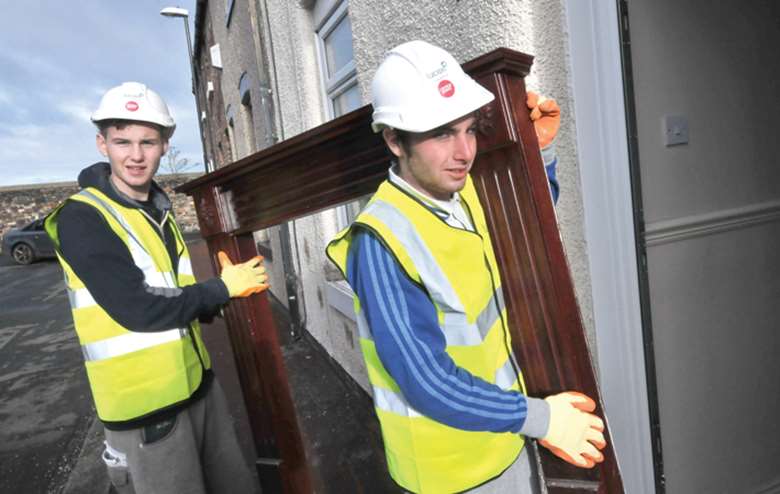Opinion: Young people can build their way out of a housing crisis
Howard Williamson
Tuesday, January 7, 2014
Sometimes innovative and important policy ideas come from the most unexpected quarters. The often reactionary planning minister Nick Boles suddenly piped up some weeks ago that plots of state-owned land should be available, via a waiting list running parallel with that for council housing, to young people for them to build houses for themselves.

Boles set out these plans in the same speech where he expressed concerns that the Conservatives were at risk of being viewed by many young people as "aliens from another planet". He argued that a self-build initiative, giving young people the opportunity to get on and help themselves, might be a way of connecting more positively with the young.
It was a complete coincidence that, the same week, I was in Sweden discussing housing, jobs and young people. Housing, I argued, was the weak link of youth policy, despite growing levels of youth homelessness and far too many young people still feeling forced to live at home long after they would have preferred to have moved out.
Indeed, we have been aware of an impending housing crisis for the young for at least a decade. Well over 10 years ago, the average age at which young men left home in Spain was 32. More recently, the Italian government has been agonising over policy instruments that might serve to coerce young men out of the family home. Yet very little has actually been done.
In the UK, we have largely remained stuck in the position articulated by Margaret Thatcher in the 1980s - that young people already have homes, that is the homes of their parents.
Not true, of course, for some young people.
But largely true, if not necessarily desirable, for most. Housing has been the ghost at the feast in deliberations on youth policy over many years.
Housing was not a statutory element of the youth justice reforms that constituted youth offending teams. This was despite considerable awareness of the importance of stable and supported living conditions for young people leaving care (and their knock-on effect in influencing their offending behaviour) and of appropriate accommodation in the resettlement of those leaving custody to help their rehabilitation.
Nor are we short of more general evidence that successful housing transitions are premised upon family support, the possibility of return, and it taking place at a time of choosing by young people. In contrast, disastrous housing transitions often result from "moving out": suddenly, being unprepared, and lacking the various forms of often quite invisible support from family and friends.
So there is a very mixed story out there, requiring a calibrated understanding and response. That response needs to connect both vertically with the past and present circumstances of young people and their aspirations for the future, and horizontally with wider policy challenges and questions. That is why "self-build" is by no means a bad idea.
It is, indeed, not particularly new, and the concept could be taken further. Its resurrection could be linked to apprenticeships and other vocational training possibilities in the construction industry. It could and should be attached to the work of organisations such as the Foyer Federation - providing personal development, interim housing and skills development.
Young people generally do not have over-ambitious hopes for the future. When asked, they usually express modest hopes for a job, a car, a family and a place of their own. For many, these are now proving more elusive and harder to secure. In these times of austerity, there have been calls for huge infrastructure projects to kick-start the economy. Boles may inadvertently have hit upon a different seam of opportunity.
We need to join with him in calling for modest housing projects connected to the wider needs of young people to cement their social inclusion and to kick-start their transitions to adulthood.
Howard Williamson is professor of European youth policy at the University of South Wales.




